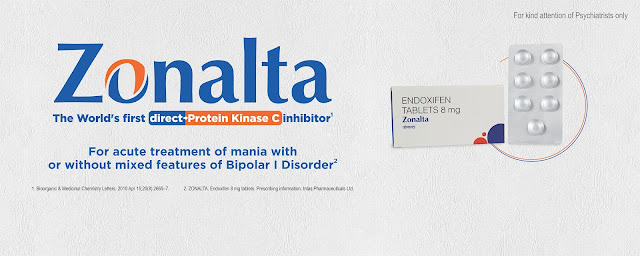Zonalta's Impact on Protein Kinase C in the Management of Bipolar Disorder
In the intricate landscape of mental health, where the intricate biochemical ballet within our cells orchestrates our moods, Protein Kinase C (PKC) emerges as a key player. Zonalta, a medication designed to address conditions related to PKC dysfunction, holds promise in the realm of mental health, specifically in the management of Bipolar Disorder.
Understanding Protein Kinase C:
Protein Kinase C is a critical enzyme involved in cell signaling and the regulation of various cellular processes. In the context of Bipolar Disorder, the dysregulation of PKC has been implicated in the erratic mood swings characteristic of this mental health condition.
Zonalta's Unique Approach:
Zonalta, a medication specifically designed to interact with Protein Kinase C, offers a targeted intervention in the intricate biochemical dance of Bipolar Disorder. By modulating the activity of PKC, Zonalta aims to restore balance to the signaling pathways associated with mood regulation.
The Role of Zonalta in Bipolar Disorder Management:
Bipolar Disorder is characterized by extreme mood swings, from manic highs to depressive lows. Zonalta's interaction with Protein Kinase C is poised to influence the underlying cellular mechanisms contributing to these mood fluctuations. By targeting PKC, Zonalta aims to stabilize neurotransmitter levels and regulate the intricate dance of signals that impact mood.
Navigating the Treatment Landscape:
For individuals grappling with Bipolar Disorder, understanding the interplay between PKC and Zonalta becomes crucial. The medication, often part of a comprehensive treatment plan, seeks to complement traditional therapeutic approaches, providing a targeted intervention at the cellular level.
Addressing Concerns and Potential Benefits:
As with any medication, there are considerations. Patients should be aware of potential side effects associated with Zonalta's modulation of Protein Kinase C and communicate any concerns to their healthcare provider promptly. Exploring the potential long-term benefits is also essential, ensuring that Zonalta aligns with the individual's overall treatment goals.
In conclusion, the connection between Protein Kinase C and Bipolar Disorder offers a fascinating avenue for therapeutic intervention. Zonalta, with its unique interaction with PKC, holds promise in the management of Bipolar Disorder by addressing the underlying cellular processes contributing to mood dysregulation. As research and clinical experience continue to unfold, Zonalta's role in the intricate dance of mental health may prove to be a significant step forward in the pursuit of effective and targeted treatments for Bipolar Disorder.


.jpeg)
Comments
Post a Comment